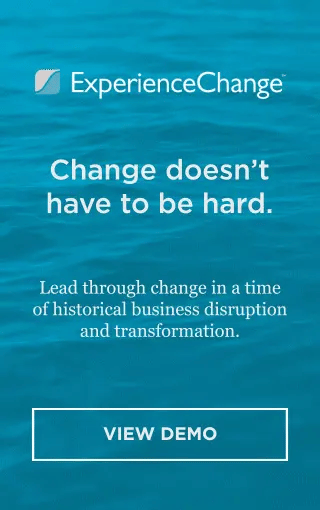If you’ve ever tried to kick a bad habit or cultivate a new routine, you know that it’s easier to set goals than to achieve them. There are countless cognitive, psychological and emotional reasons that make change difficult. Not only do we become comfortable in and attached to our habits, but research also shows that repetition strengthens neural pathways, normalizing the activities that you do the most.
Still, the experts tell us that the benefits of developing healthy habits make them worth the struggle they might require to cultivate.
At ExperiencePoint, our approach to building innovative organizations is founded on changing the way that people work. By helping people build new skills and mindsets, we set them up to be more creative, effective and customer-focused in everything they do. While a part of this method requires that the organization create the necessary conditions for change (our workforce transformation offering covers this dimension), another part simply means that people actively practice and apply their new capabilities, challenging themselves to embrace a new way of working.
How can you accelerate change on an individual level? Here are 4 helpful ways to make new habits stick:
-
Think of change as a process.
Change can take time and be psychologically taxing. Just as addiction-recovery and grieving can be multi-step processes, change may also require that you cycle through several stages before achieving your goal. An article published by Harvard Medical School argues that there are five stages to change: Pre-contemplation, Contemplation, Preparation, Action, Maintenance. And the journey from one stage to the next isn’t always perfectly linear. If, for example, you’re working on exercising more, you may skip a week and quickly relapse from Action to Contemplation. The authors of this theory encourage you to think of relapse as an inevitable part of the process. Rather than letting it be dispiriting, a relapse can be viewed as information that illuminates something that isn’t working for you. Use that information to make a more realistic plan for successful change.
-
Start Small.
Setting modest, achievable goals in the short-term is good for both psychological and cognitive reasons. Psychologically, it wards off the possibility that you’ll feel daunted and overwhelmed, increasing the likelihood that you’ll throw up your hands and give up too soon. Cognitively, it jumpstarts the creation of new neural pathways, making these small adjustments to your behavior easier and more natural with time. Small changes will beget more small changes, and eventually they can add up to significant shifts in your work.
-
Know your Excuses.
If you’re trying to incorporate human-centered design into your daily responsibilities, and know that you get stressed out around deadlines, don’t plan on brainstorming and prototyping the same week that a project is due. Schedule ahead and think proactively about your tendencies and needs. Being aware of your typical excuses allows you to address them and figure out the root of the problem. We self-sabotage for many reasons: fear of failure, perfectionism, fear of criticism, etc. Understanding the cause of your behavior is the first step toward rectifying it.
-
Engage your Peers.
Support is crucial for success. By building a network of cheerleaders, you’ll see small achievements celebrated and feel motivated to keep on target. Peer engagement is even more effective if you share common goals with your co-workers. If, for example, you establish a team objective of incorporating one new innovative practice into your work every week, you’ll build a sense of camaraderie and healthy competition. You’ll reinforce each other’s goals and ambitions. You’ll also have several people to talk to when setbacks and difficulties arise and you need an empathetic ear.
Remember, the course of habit-making never did run smooth! Patience, optimism and instant self-forgiveness will help you stay positive and focused on your long-term goals.
